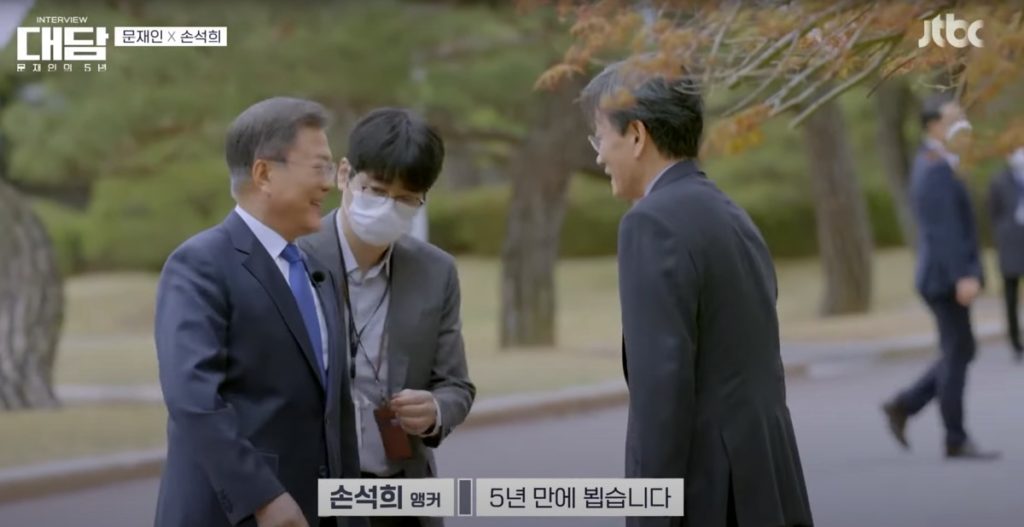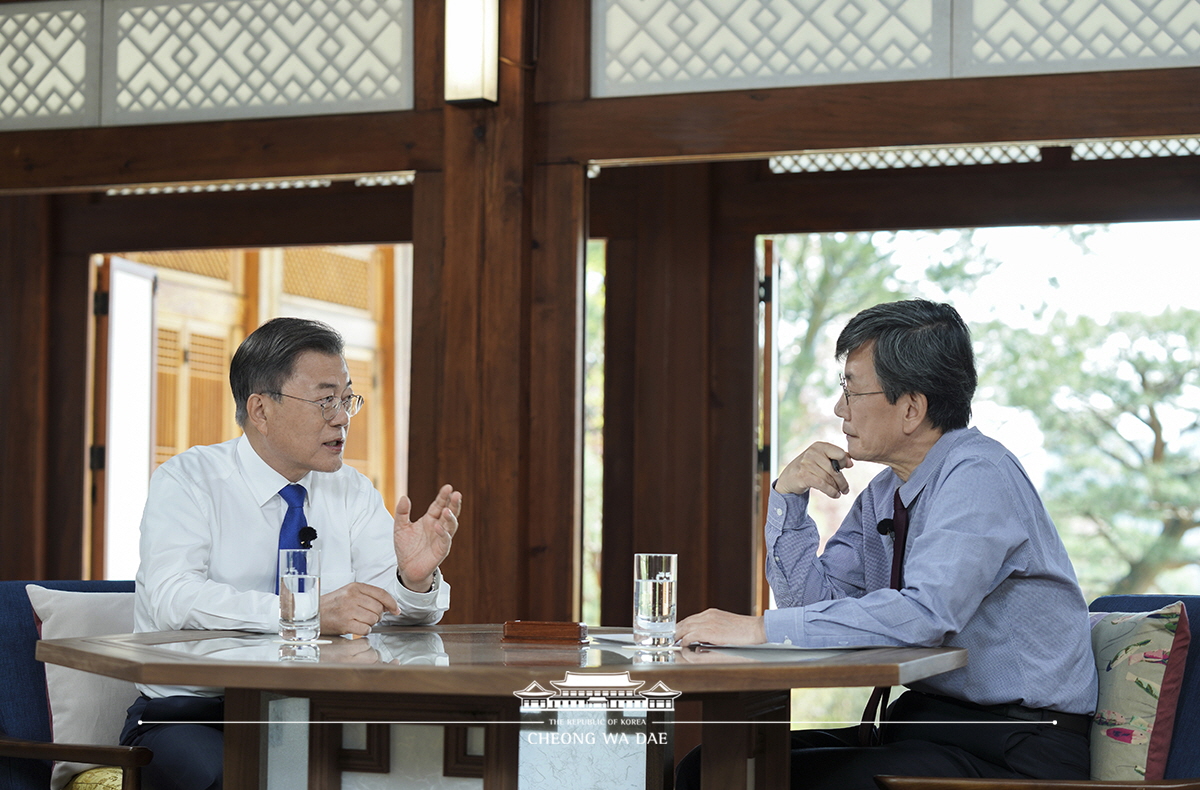Why did Moon do this awkward interview?
Two weeks ago, I predicted that President Moon’s last interview with Sohn Suk-hee would be a tepid, pre-scripted-ish, just like his dialogue with the nation.
I was wrong. The interview got pretty tense several times, and the last time I felt this nervous while watching an interview was when Steve Rosenberg interviewed Alexander Lukashenko.
Of course, Moon is far from a dictator who brutally suppresses people and uses helpless immigrants as weapons. However, when hard-pressed by Sohn, Moon didn’t even bother to hold back his grumpiness, which led to very awkward silences.
Most memorable moment from Moon’s interview with Sohn: pic.twitter.com/WbH0I3HFmo
— Subin Kim (@SubinBKim) April 26, 2022
I was shocked by his sheer grumpiness—he was never a good talker, but at least, as I remember, he had tried to convey a streak of gentleness before becoming the President.
A politician, I believe, should try to persuade someone who doesn’t agree with them. Their words, too, should be a means for this. Moon’s words sounded closer to those of an authoritarian rather than those of a democratic politician. He didn’t try to persuade Sohn. He just enumerated his cherrypicked facts and figures and refused to elaborate when countered.
For those who disapprove of Moon, like me, the interview was an embarrassment.
He even tried to refute that his housing policy was a failure by insisting the property price surge was global even though most experts agree that Moon’s two dozen policy measures made matters worse.
Even worse, he disagreed that Minjoo’s defeat in the presidential election had something to do with him. He even indicated it would have been different if he was allowed to “enter the ring.”
 <figcaption>By the way, the show displays the Blue House very well</figcaption>I talked to several journos, and all had the same question: why did Moon do this interview? Sohn is famous for his sharp questions, and there’s no way Moon could handle them well since his poor speech was well known from the beginning of his political career.
<figcaption>By the way, the show displays the Blue House very well</figcaption>I talked to several journos, and all had the same question: why did Moon do this interview? Sohn is famous for his sharp questions, and there’s no way Moon could handle them well since his poor speech was well known from the beginning of his political career.
I felt déjà vu: I had the same question when I read Moon’s Time interview last year. Why did Moon agree to have an interview at that time? It was pretty easy to see the story won’t do good for him: because his North Korea policy eventually failed.
I was working for a PR agency at the moment, and I even asked my seniors in the office for their opinion on this. One suggested he might have wanted to leave a legacy, a record. It sounded plausible, but I still couldn’t be sure. My theory then was that Moon’s foreign press advisors are dipshits. (Moon’s Blue House had a strange tendency to hire US attorneys for its foreign press advisors.)
 <figcaption>Tak in the middle</figcaption>So, what was on the mind of Moon’s PR orchestrator Tak Hyun-min?
<figcaption>Tak in the middle</figcaption>So, what was on the mind of Moon’s PR orchestrator Tak Hyun-min?
My conclusion is that they didn’t aim to persuade others from the beginning: haters gonna hate. To this day, Moon’s approval rate exceeds 40 percent. It appears Tak just wanted Moon to wave some cherrypicked figures that show that Moon made Korea great again in the face of Sohn and the critics alike.
